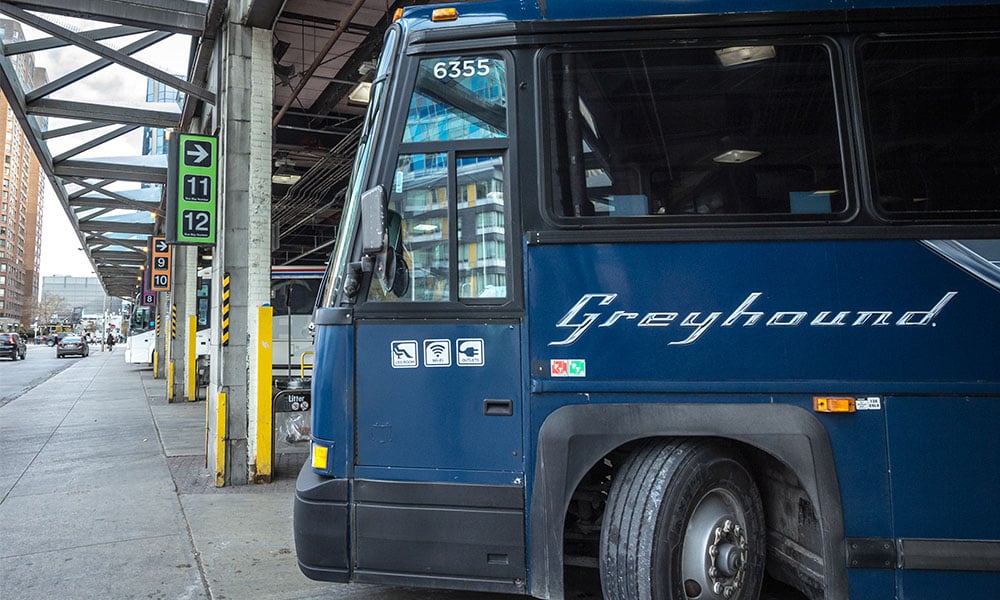
Evidence found to be conflicting and inconclusive, so court dismissed motion for summary judgment

The Superior Court of Justice has rejected a request for summary judgment in relation to a case involving an alleged slip-and-fall injury.
In Hassan v. Greyhound Canada Transportation Corp., 2020 ONSC 5946, the plaintiff was riding a Greyhound bus from New York City to Toronto. As she was coming down the stairs to disembark from the bus, she broke her ankle.
The defendant, Greyhound Canada, filed a motion for summary judgment, which the Ontario Superior Court of Justice dismissed. The court said that the evidence regarding the mechanics of the plaintiff’s fall and regarding the transportation company’s cleaning policy was inadequate to fairly and justly decide upon the matter.
The court noted that a jury notice had been served and opined that a jury would be the right body to make a common sense assessment of everyday situations, such as the question of reasonableness in terms of the bus cleaning policy.
“Whether or not the bus driver should mop up the floor after stopping and passengers getting on and off the bus on a wintry day is not just a geographically Canadian question, it is one of common sense,” wrote Justice Edward M. Morgan for the court.
The case involved conflicting evidence regarding numerous factual points, such as whether the plaintiff was wearing a coat which was oversized or one which fit her well, whether the weather was dry or snowy, whether the stairs were clean or wet, whether the plaintiff missed a step upon her descent, whether the driver was standing at the foot of the steps and whether, as the plaintiff was asserting, the injury was a true slip injury caused by a wet surface.
The court then discussed the issue of whether the transportation company and the driver fell below the required standard of care. The transportation company was required by s. 3 of the Occupiers’ Liability Act, RSO 1990, c. O.2 to take reasonable safety precautions for its passengers.
While the defendant provided evidence regarding its general bus cleaning policy, the court was unable to determine whether the defendant had followed this policy. It did find that the bus did not undergo cleaning when it stopped at Canada Customs, when the passengers got down to accomplish customs procedures before getting back on. If the January day was snowy, the stairs could have gotten slippery and wet during this time, the court stated.
The court said that it did not have enough evidence the address the issue of whether cleaning the floor was within the driver’s reasonable duties, as well as the following question: “Is the obvious risk of a slippery, wet staircase and floor inherently or unusually hazardous, or is it so obvious as to be expected by the passengers and not part of the bus driver’s duty to clear?”